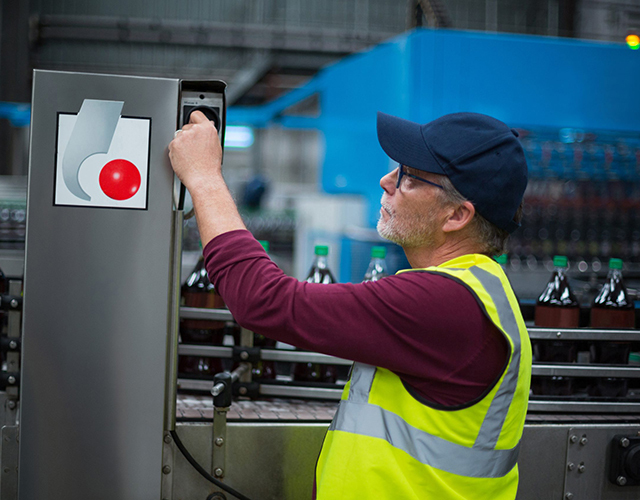South India is home to a diverse set of thriving industries ranging from agriculture to aerospace, and textiles to pharmaceuticals. In the manufacturing and distribution of products from these industries, quality control and inspection services play a crucial role in maintaining product and service standards. This article explores the significance of these services in South India, with a detailed look at specialised services in Kerala, Tamil Nadu, and Karnataka.
The Importance of Quality Control and Inspection Services
Quality control (QC) and inspection services are essential for ensuring that products meet regulatory standards and consumer expectations. These services help in detecting defects, ensuring safety, and maintaining the overall quality of products before they reach the market. In regions like South India, where industries vary widely, the importance of tailored QC and inspection services cannot be overstated. These services not only uphold the reputation of your business but also ensure compliance with both local and international standards.
Specialised Services in South Indian States
Industries for Quality Control in Kerala
Kerala, known for its rich natural resources and agricultural heritage, boasts a variety of industries that require specialized quality control services.
Seafood – Kerala’s seafood industry is a significant contributor to the state’s economy. Quality control in Kerala for seafood involves rigorous inspection processes to ensure that the products meet international standards. This includes checking for contamination, proper freezing techniques, and adherence to hygiene standards. Regular inspections and quality control measures are crucial to maintain the freshness and safety of seafood products exported from Kerala.
Agriculture – Agriculture is the backbone of Kerala’s economy, with a focus on crops like spices, rice and coconut. Quality control in agriculture ensures that these products are free from pesticides and other harmful chemicals. Regular soil and crop inspections help in maintaining the health of the crops and the safety of the produce. Agriculture quality control involves testing for pesticide residues, ensuring organic farming practices, and maintaining sustainable agricultural methods.
Food Processing – The food processing industry in Kerala is another area where quality control is paramount. This includes the processing of fruits, vegetables and spices. Quality control ensures that the processed foods are safe for consumption, free from contaminants, and meet all regulatory requirements. Regular inspections and testing are conducted to ensure that the food processing units adhere to the highest standards of hygiene and safety.
Coffee and Tea – Kerala’s coffee and tea industries are renowned for their high-quality products. Quality control measures in these industries involve checking the quality of the beans and leaves, ensuring proper processing methods and maintaining consistency in flavor and aroma. These measures help in retaining the unique characteristics of Kerala’s coffee and tea, making them highly sought after in international markets.
Handicrafts – The handicrafts industry in Kerala is known for its exquisite craftsmanship. Quality control in this sector ensures the use of quality materials and that the final products meet aesthetic and durability standards. Regular inspections help in maintaining the authenticity and quality of Kerala’s handicrafts, which are popular among tourists and art collectors.
Industries for Quality Control in Tamil Nadu
Tamil Nadu is a hub for automobile, textile, pharmaceutical, and chemical industries, among others. Quality control in Chennai, the state’s capital, and other industrial areas is crucial for maintaining the competitiveness of these industries.
Automobile and Auto Components – The state is known as the Detroit of India, with a thriving automobile and auto components industry. Quality control in this sector involves rigorous testing of vehicles and components to ensure safety and performance. Automobile inspection includes checking for defects, ensuring compliance with safety standards and testing for durability and efficiency.
Engineering – The engineering industry in Tamil Nadu encompasses a wide range of products, from heavy machinery to precision tools. Quality control ensures that these products meet the required specifications and standards. Regular inspections and testing help in maintaining the reliability and efficiency of engineering products.
Pharmaceuticals – Pharmaceutical quality control is critical in ensuring the safety and efficacy of medicines. In Tamil Nadu, this involves stringent testing of raw materials, in-process quality checks, and final product testing. Ensuring compliance with international pharmaceutical standards is essential for the industry’s reputation and for safeguarding public health.
Garments and Textile Products – The textile industry in Tamil Nadu is renowned for its high-quality garments and fabrics. Textile inspection involves checking the quality of raw materials, monitoring the manufacturing process and inspecting the final products for defects. Ensuring high standards in textile production helps in maintaining the state’s reputation as a leading textile hub.
Leather Products – Tamil Nadu is also famous for its leather products. Quality control in this sector involves checking that the leather is processed correctly, free from harmful chemicals, and meets durability standards. Regular inspections help in maintaining the quality of leather products, which are popular in both domestic and international markets.
Chemicals and Plastics – The chemical and plastics industry in Tamil Nadu requires stringent quality control measures to ensure safety and compliance with environmental regulations. Chemical control audits involves testing for purity, checking for contaminants and ensuring proper handling and storage. Maintaining high standards in this industry is crucial for preventing environmental hazards and ensuring the safety of workers and consumers.
Industries for Quality Control in Karnataka
Karnataka is known for its diverse industries, including aerospace, biotechnology and heavy engineering. Quality control in Bangalore, the state’s capital, and other industrial areas is essential for maintaining the state’s industrial growth and competitiveness.
Automobile – The automobile industry in Karnataka benefits from rigorous quality control measures. This includes testing vehicles for safety, performance and compliance with regulatory standards. Regular inspections help in maintaining the quality and reliability of vehicles manufactured in the state.
Agro – Agriculture in Karnataka involves the cultivation of a variety of crops, including coffee, spices and fruits. Quality control in this sector ensures that the produce is free from contaminants and meets safety standards. Regular inspections and testing help in maintaining the health and quality of agricultural products.
Aerospace – Aerospace quality control in Karnataka involves stringent testing and inspection of components and systems used in aircraft manufacturing. Ensuring compliance with international aerospace standards is crucial for maintaining the state’s reputation as a hub for aerospace engineering.
Textile and Garment – The textile and garment industry in Karnataka requires meticulous quality control to ensure the quality of fabrics and garments. Textile inspection involves checking the quality of raw materials, monitoring the manufacturing process and inspecting the final products for defects. Maintaining high standards in textile production helps in enhancing the state’s reputation as a leading textile hub.
Biotech – The biotechnology industry in Karnataka benefits from rigorous quality control measures. This includes testing products for safety and efficacy, ensuring compliance with regulatory standards and maintaining high standards in research and development.
Heavy Engineering – The heavy engineering industry in Karnataka requires stringent quality control measures to ensure the reliability and efficiency of machinery and equipment. Regular inspections and testing help in maintaining the quality and performance of heavy engineering products.
The Role of Sustainable Practices and Ethical Considerations in Quality Control
Sustainable practices and ethical considerations play a significant role in quality control. Ensuring that products are manufactured using environmentally friendly methods and ethical labour practices is essential for maintaining the credibility of industries. In South India, where industries vary widely, implementing sustainable practices in quality control helps in promoting environmental conservation and ensuring social responsibility.
How External Service Providers Ensure Quality and Compliance
External service providers play a critical role in ensuring quality and compliance. They offer specialised services, including inspections, testing and certification, to ensure that products meet regulatory standards. By providing unbiased and objective assessments, external service providers like Global Inspection Managing help businesses maintain high standards of quality and safety. In South India, where industries are diverse, Global Inspection Managing tailors quality control measures to meet the specific needs of each customer and industry, ensuring compliance with both local and international standards.If your company is seeking to manufacture products in South India, quality control and inspection services will be a vital component of your operational strategy. By implementing sustainable practices and ethical considerations, and ensuring the quality and compliance of your products through the services of Global Inspection Managing, you can maintain your competitiveness in both domestic and international markets.

